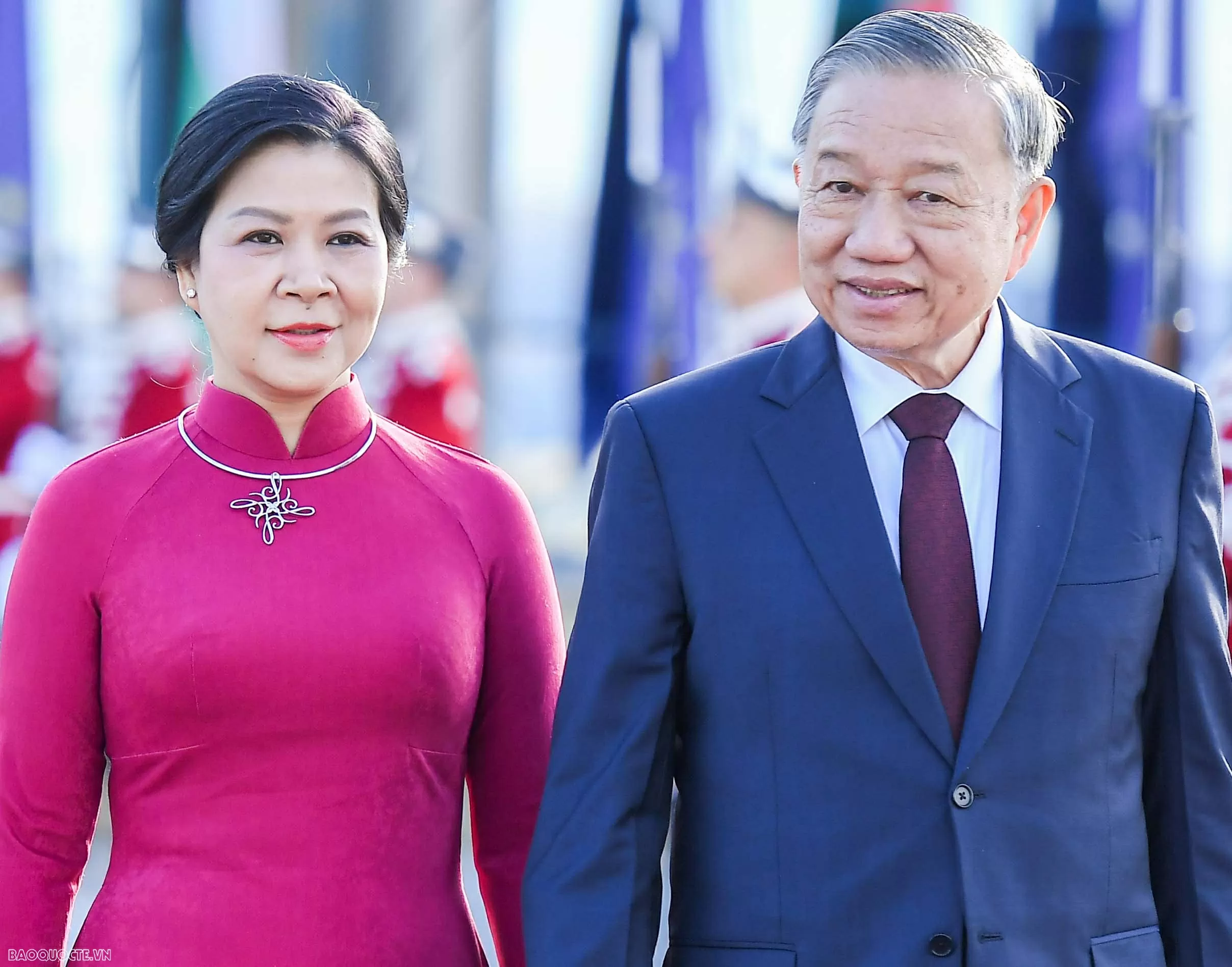 |
| General Secretary To Lam and his wife, along with a high-ranking Vietnamese delegation, are about to pay an official visit to the UK. (Photo: Nguyen Hong) |
At the invitation of Prime Minister of the United Kingdom of Great Britain and Northern Ireland Keir Starmer, General Secretary To Lam and his wife, along with a high-ranking Vietnamese delegation, paid an official visit to the United Kingdom of Great Britain and Northern Ireland from October 28-30.
On this occasion, British Ambassador to Vietnam Iain Frew gave an interview to The Gioi va Viet Nam Newspaper about the cooperation between the two countries in recent times.
Could the Ambassador share some important milestones in the recent partnership between Vietnam and the United Kingdom of Great Britain and Northern Ireland, especially in the fields of finance and education?
This year we are celebrating the 15th anniversary of the establishment of the Vietnam-UK Strategic Partnership (2010-2025). This means that, over the past 15 years, we have continuously deepened the relationship between our two countries in many different areas.
I am delighted and impressed by the progress that has been made in trade, education, finance, security and climate cooperation. In all of these areas, Vietnam and the UK are working increasingly closely together and supporting each other. What has impressed me most is perhaps the strong growth in bilateral trade and investment. Over the past decade, two-way trade has almost tripled, now reaching more than £9 billion a year.
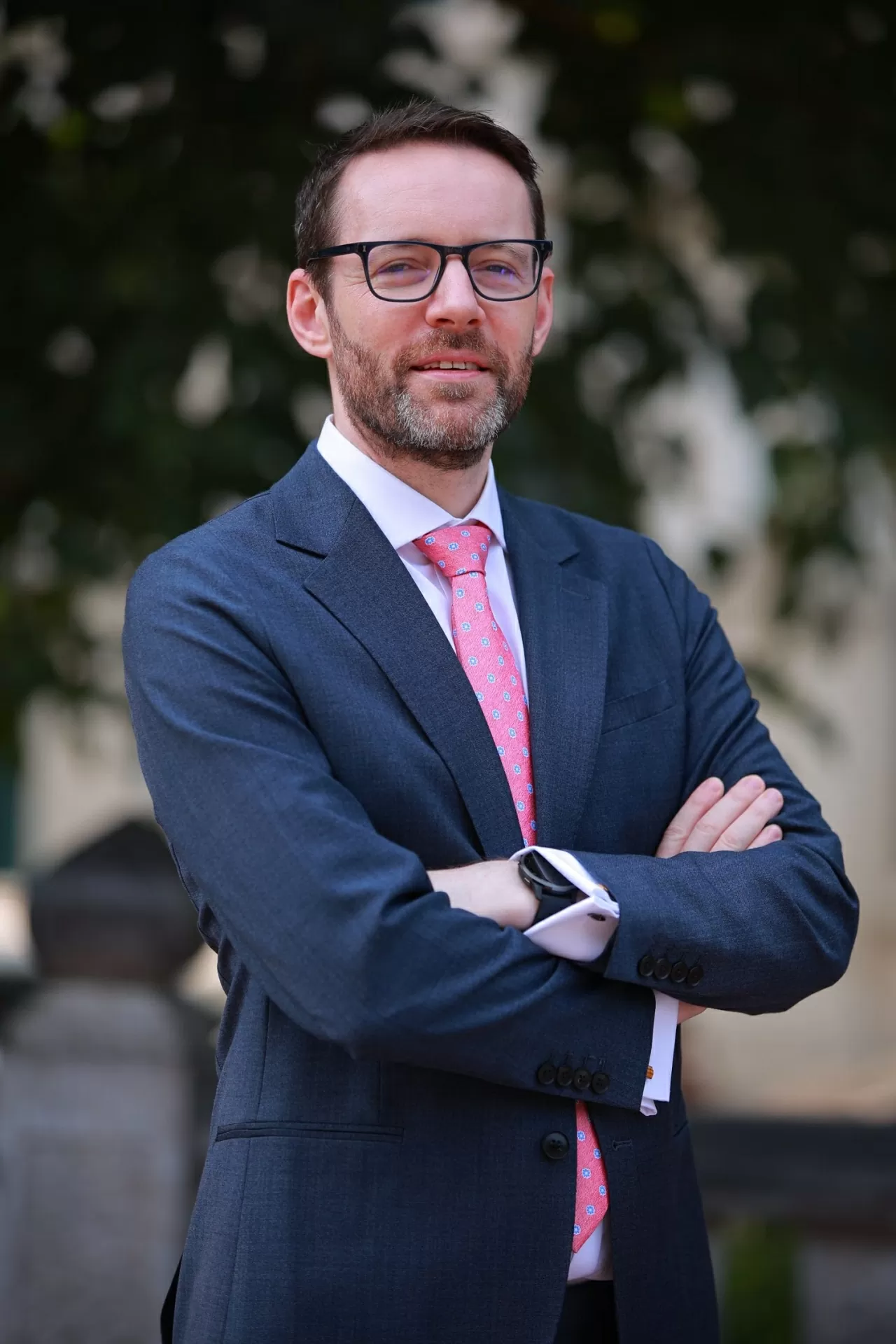 |
| British Ambassador to Vietnam Iain Frew. (Source: Embassy of Vietnam in the UK) |
This demonstrates a genuine commitment to investment from both sides in building the relationship. We now have a free trade agreement between our two countries. With the support of Vietnam, the UK joined the Comprehensive and Progressive Agreement for Trans-Pacific Partnership (CPTPP) in 2024. This is a foundation for businesses, organizations and individuals on both sides to benefit from increased trade. I believe this is a fundamental development and I hope to continue to promote it further in the future.
At the same time, we have seen an impressive cooperation in the field of education. I am delighted to see that over the past 15 years, more than 75,000 Vietnamese students have studied in the UK, with around 12,000 Vietnamese students studying here each year. Not only are they improving their skills or their English, they are also helping to build bridges between our two countries, helping to bring them closer together.
Education is always the foundation. The good news is that not only do Vietnamese students go to the UK to study, but British education is also becoming an important part of Vietnam's future development orientation. Recently, the Vietnamese Ministry of Education and Training has decided to implement English as the second language in the national education system. Therefore, many British organizations are supporting this decision, helping the young generation of Vietnam to be able to use English fluently and integrate more deeply into the international community.
At the same time, we have seen a strong growth in joint university education programmes, such as courses from the University of London and many other leading UK universities being taught right at Vietnamese educational institutions. As a result, access to high-quality UK education is not only available to those who can go to the UK to study, but also available right here in Vietnam. This is very encouraging.
In addition, a number of other areas of the bilateral relationship have developed extremely strongly, especially cooperation on climate and green transition. At COP26 in Glasgow in 2021, the Vietnamese Government made a historic commitment to achieve net zero emissions by 2050 – an ambitious target, which the UK is also aiming for. The two countries are working closely to make this commitment a reality, through the Just Energy Transition Partnership (JETP) and UK energy businesses.
This week, the UK Energy Mission is in Vietnam to support the development of the offshore wind sector. This is an area where the UK has a lot of practical experience. I believe that working together on the green transition will bring about fundamental changes to Vietnam’s energy sector.
Finally, I would like to mention defence and security cooperation. Over the past decade, the UK has been proud to accompany Vietnam on its path to international integration, for example in UN peacekeeping operations. We have supported Vietnam through military training and cooperation programmes, and shared experience in modernising and diversifying the defence industry. While twenty years ago this was an area where the two countries had no opportunity to cooperate, it has now become a dynamic area of cooperation, contributing to regional and global security.
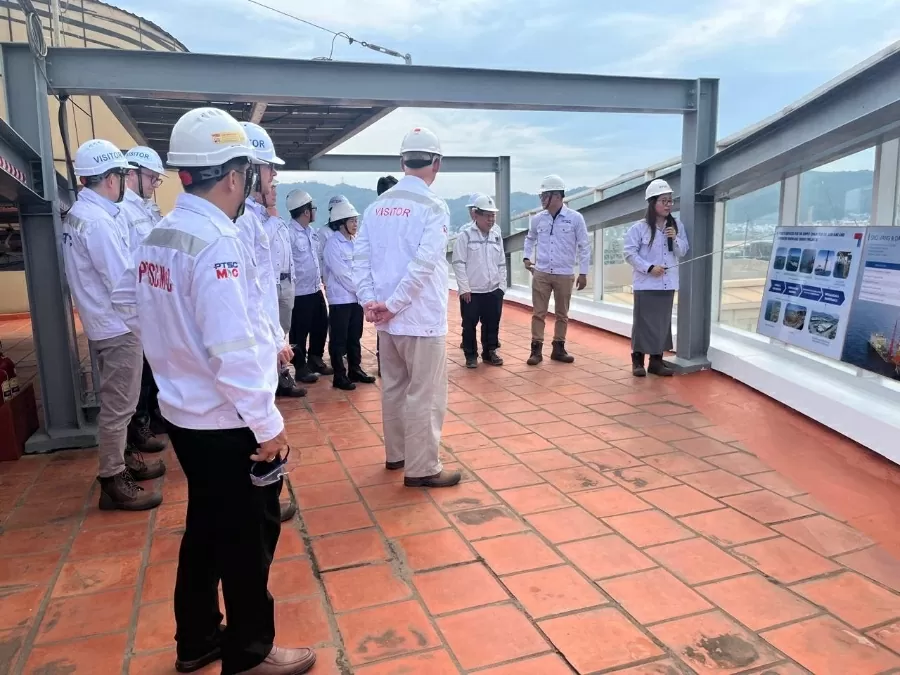 |
| The UK Energy Trade Delegation is on a working visit to Vietnam. (Source: British Embassy in Vietnam) |
Currently, Vietnam and the UK maintain a Strategic Partnership. On the occasion of General Secretary To Lam and his wife and the high-ranking Vietnamese delegation's official visit to the UK, could you please share your assessment of the significance and importance of this visit?
This is a significant visit, marking a new development in the relationship between the two countries to a higher level. This is also the first visit by a Vietnamese General Secretary to the UK in 13 years - a historic event.
For me, the highlight of the visit was the high-level political dialogue between the leaders of the two countries, demonstrating the trust and shared interests of the UK and Vietnam. In a world of great uncertainty, maintaining trust and dialogue at the highest levels will help both countries promote common interests, from free trade, global security to responding to international challenges.
The visit will consolidate and demonstrate the practical cooperation between the two sides. Specifically, we will continue to promote economic cooperation, especially in the fields of technology, artificial intelligence, semiconductors and emerging technologies. These are key factors for the next stage of Vietnam's development.
In addition, Vietnam aims to build international financial centers in Ho Chi Minh City and Da Nang. The UK is working closely to share experiences and support the development of this sector. When the financial sector develops, it will not only serve consumers but also create capital for sustainable development of the entire economy.
Education and skills training continue to be a focus of the new agreements. We want to ensure that Vietnam’s youth are equipped with the skills needed for the future economy, while maintaining a human resource bridge between our two countries.
Energy cooperation and green transition will be accelerated after this visit. I believe that the discussions in London will materialize ambitions into practical cooperation programs that will benefit both countries.
Finally, in a changing global context, Vietnam and the UK have many shared interests, from protecting the rules-based international system, to ensuring free trade and secure and stable supply chains. We need to work closely together to strengthen these. I believe that this visit will set the direction for our two countries to cooperate more deeply in the future.
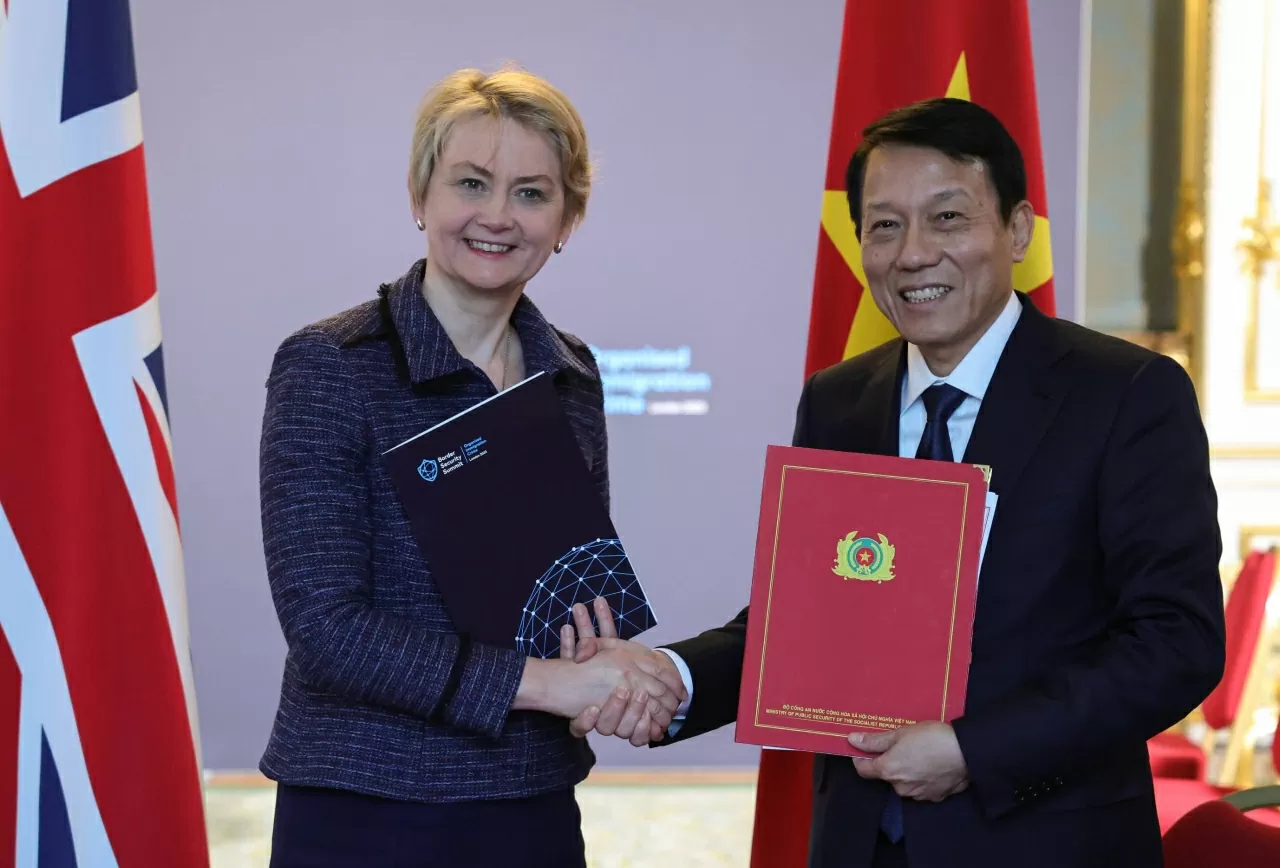 |
| Vietnam and the UK signed an action plan to prevent and combat human trafficking. (Source: British Embassy in Vietnam) |
Yes, the Ambassador has just mentioned a new stage of development. Looking back, could the Ambassador give his assessment of Vietnam's outstanding economic achievements?
Vietnam’s development story is truly one of the most remarkable in the world. Looking back over the past three decades, Vietnam has transformed itself from a low-income country to a middle-income one, lifting millions out of poverty. This achievement is the result of the persistent efforts and long-term investment of the Vietnamese people and Government.
Today, Vietnam is in a strong position, with a young, well-educated population, a favorable geostrategic location, a developed manufacturing sector, deep integration into the global supply chain and a wide network of free trade agreements. These are important foundations for the next stage of development.
However, Vietnam faces many challenges: how to move up the value chain, attract investment in high-tech industries and ensure a workforce with the right skills. I find Vietnam’s recent orientations very encouraging, such as Resolution 57 emphasizing innovation as the center of economic development, and Resolution 68 identifying the private sector as the main driver of the economy. These are the right steps for Vietnam to achieve its goal of becoming a developed, high-income country by 2045.
In addition, international cooperation is an indispensable factor. I am pleased to see that Vietnam considers international integration and partnerships as a core part of its development strategy. I believe that with partners like the UK, Vietnam is fully capable of continuing to succeed in this new stage of development.
I am very optimistic about that future and believe that by seizing opportunities and overcoming global challenges such as trade conflicts and security instability, we can realize Vietnam's great aspirations and potential.
Thank you very much, Ambassador!
Source: https://baoquocte.vn/dai-su-anh-chuyen-tham-cua-tong-bi-thu-to-lam-dinh-huong-cho-hai-nuoc-hop-tac-sau-rong-hon-trong-tuong-lai-332400.html




![[Photo] The 5th Patriotic Emulation Congress of the Central Inspection Commission](https://vphoto.vietnam.vn/thumb/1200x675/vietnam/resource/IMAGE/2025/10/27/1761566862838_ndo_br_1-1858-jpg.webp)

![[Photo] Party Committees of Central Party agencies summarize the implementation of Resolution No. 18-NQ/TW and the direction of the Party Congress](https://vphoto.vietnam.vn/thumb/1200x675/vietnam/resource/IMAGE/2025/10/27/1761545645968_ndo_br_1-jpg.webp)
![[Photo] National Assembly Chairman Tran Thanh Man receives Chairman of the House of Representatives of Uzbekistan Nuriddin Ismoilov](https://vphoto.vietnam.vn/thumb/1200x675/vietnam/resource/IMAGE/2025/10/27/1761542647910_bnd-2610-jpg.webp)
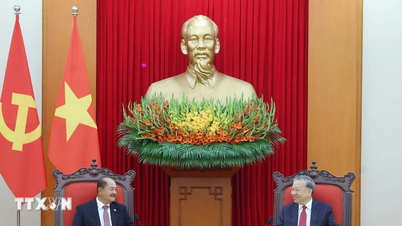


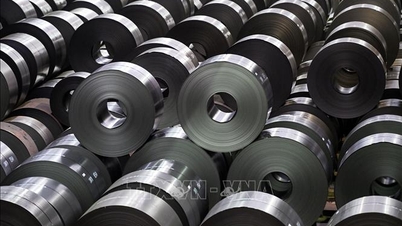



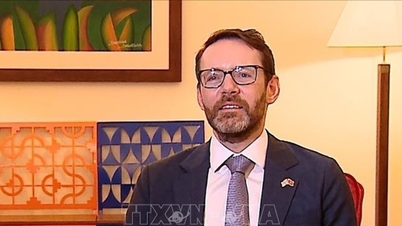

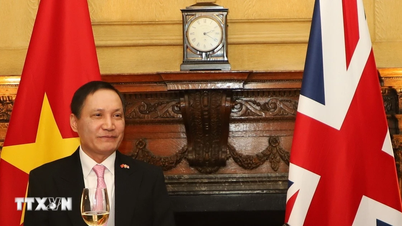
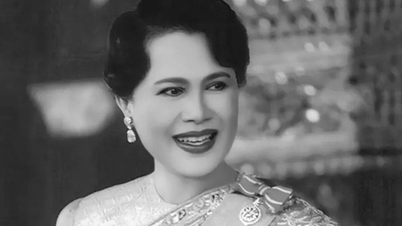

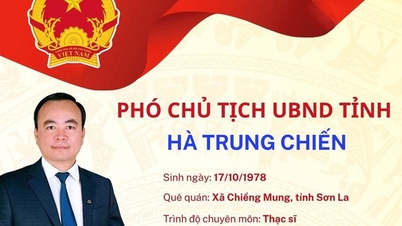
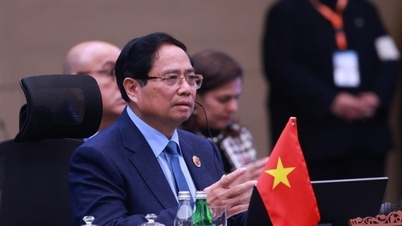
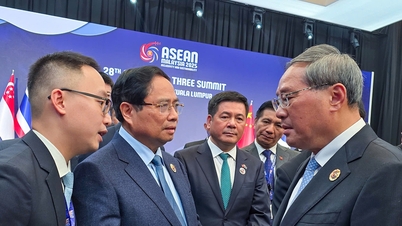

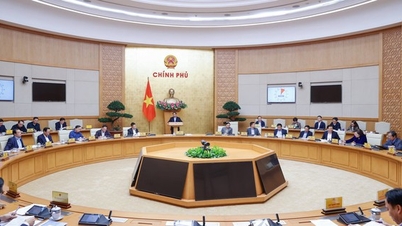
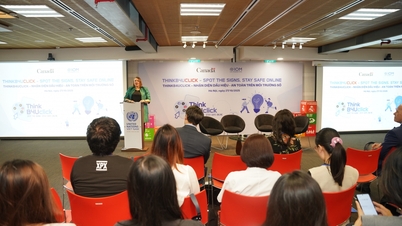





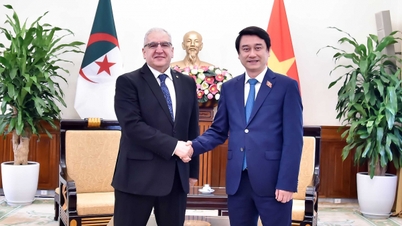
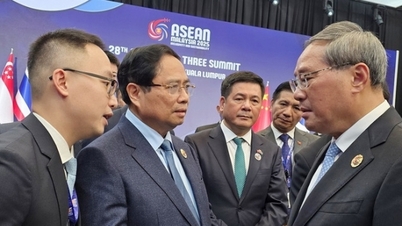

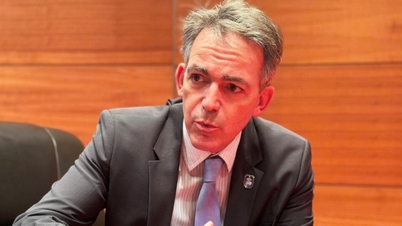
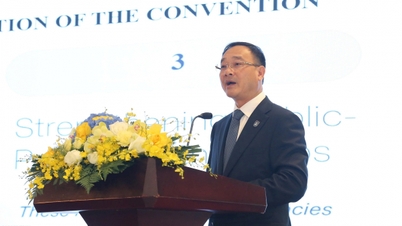
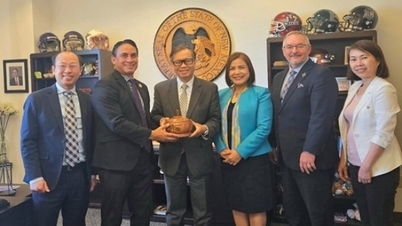






















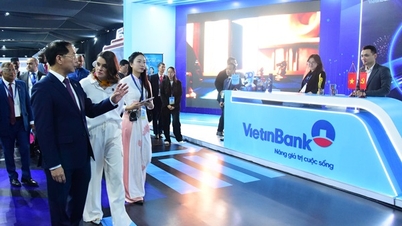













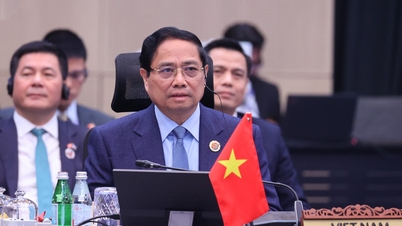





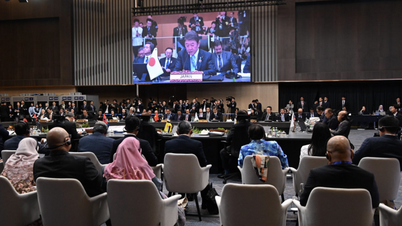

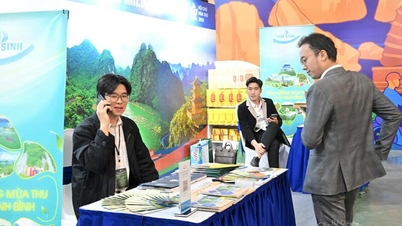
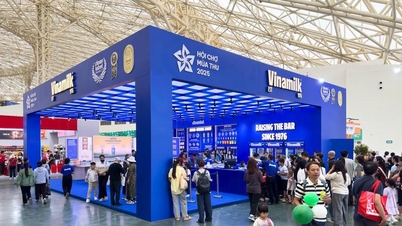
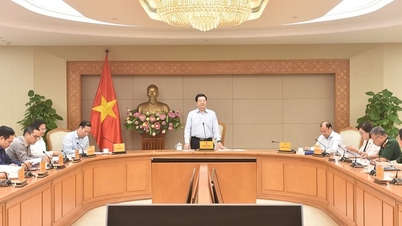

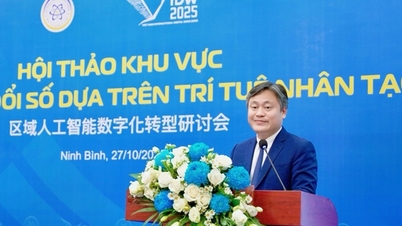
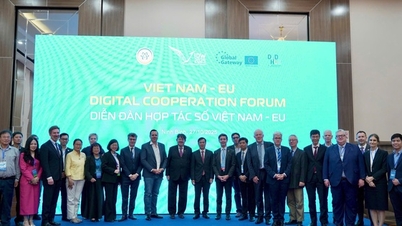
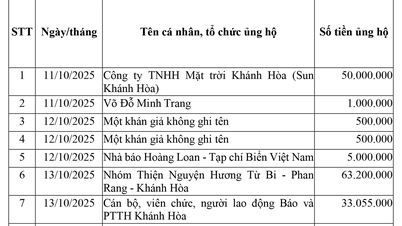

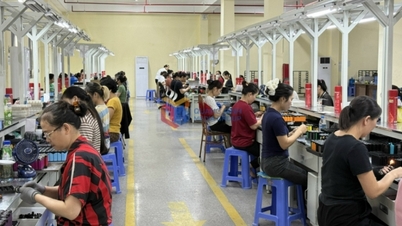

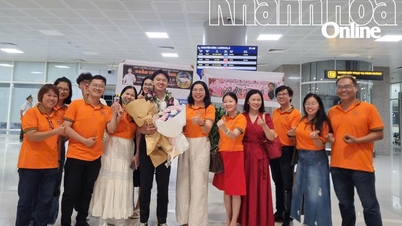
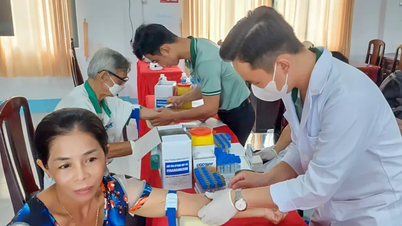

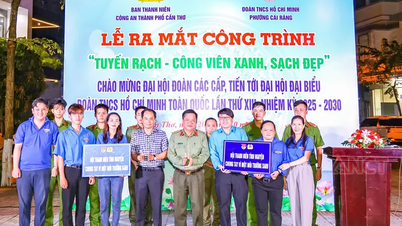
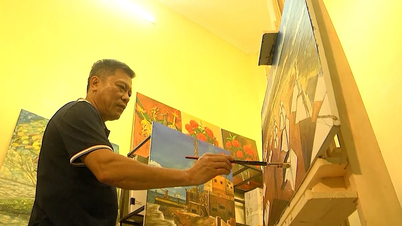















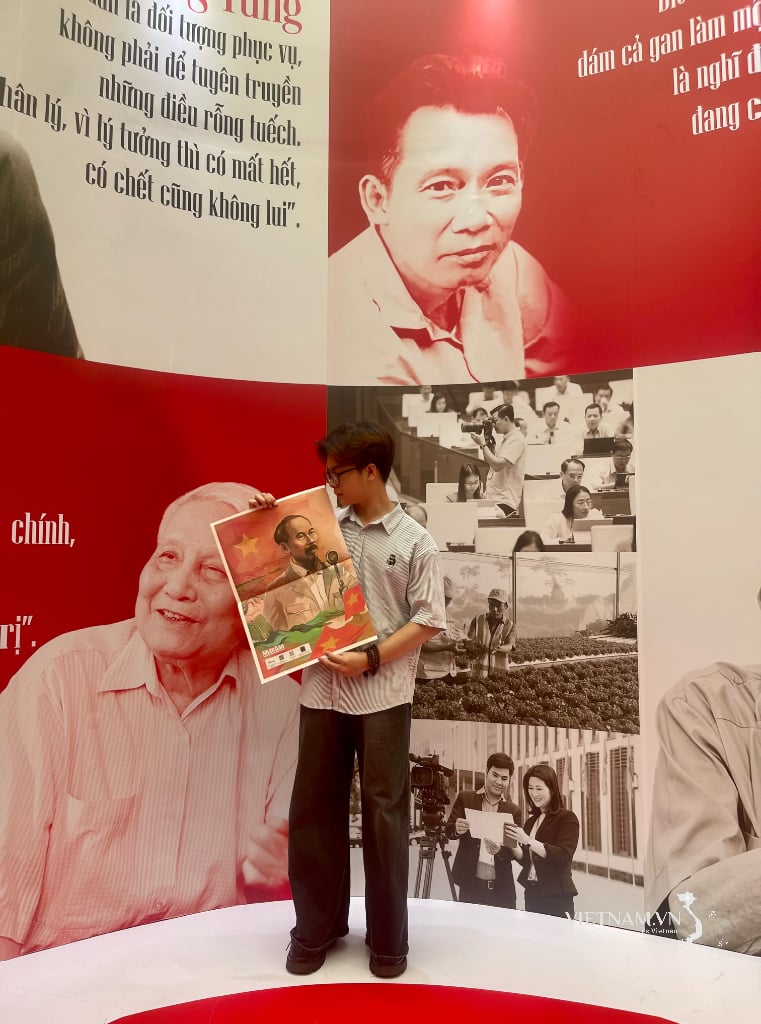

Comment (0)